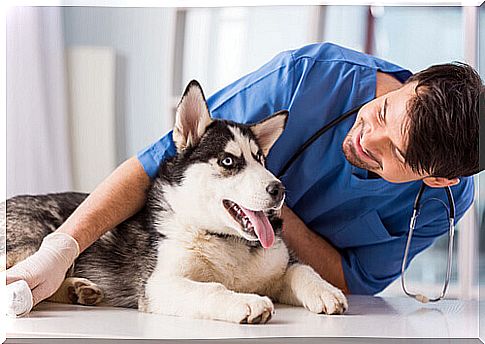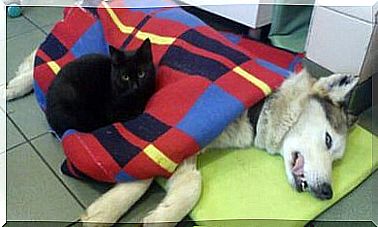8 Things You Should Ask An Ethologist

Pets are being cared for more and more and, therefore, to take care of their health, new specialists are appearing every day. For example, it’s been a few decades since just one veterinarian was enough. Today, there are veterinarians, surgeons and even pet psychologists. And lately we are hearing a lot about a new profession, that of the ethologist.
To know what we can ask an ethologist, we must first know what this profession is and what it consists of.
what is an ethologist

As in our case, and we mentioned at the beginning, for pets there are veterinarians who could resemble a general practitioner, and there are specialists for each type of illness that our pet presents.
The ethologist is the one who studies, examines and diagnoses behavior problems in pets. There are many others who just took a course, for a specific amount of money, in just one day, and give “advice” on what to do and how to do it.
However, an ethologist is a professional who goes to your home, looks at the environment in which the animal lives, its medical history and even interviews the owners. In this way, you can make a diagnosis of the animal’s behavior to find out if it is caused by the surroundings or by something more or less serious.
Once a diagnosis is reached, a treatment is prescribed that can consist of several parts, such as pharmacological or surgical, without forgetting behavior modification. The latter should not be confused with training, as this relies on teaching the animal to obey, while behavior modification is carried out to eradicate bad behavior or teach others to help it overcome a problem.
What to ask an ethologist
Knowing what our dog wants, how and when he wants it is a mystery to everyone, because our pet cannot talk. We can guess what goes on in his little head, but we can never be one hundred percent sure what is going on.
Due to the behavior problems of some dogs, doubts arise among their owners. So let’s see what things to ask an ethologist and what his answers would be.
What should I not do if my dog is aggressive?
As we said before, asking for advice over the phone from those who call themselves professionals in the field is not the solution. A professional ethologist will not answer your questions over the phone, as he or she will have to go to your home and examine the environment in which the animal lives. Still, this is a part of what not to do:
- don’t provoke him
- Don’t wait for it to change itself
- Impose yourself and show that you are the leader
- Don’t hit him or punish him
- Try not to reinforce your aggression
- Don’t forget that an aggressive dog is a risk.
What should I do if I’m aggressive?
This is what an ethologist would tell you:
- keep yourself safe
- Avoid aggressive situations
- Teach him to win things, especially with his good behavior
- Create an activity routine
- positive reinforcement
What do I do if my dog is aggressive towards my child?
All of the above item can be useful, although it is necessary to know the situations in which the animal becomes aggressive with the child. Depending on them, one or another rules will be followed.
Why is he staring at me?

You may have noticed that this happens after there have been changes of residence or sudden changes, such as a divorce or the departure of the children. Although they are good, some changes can affect our pet.
He is not able to assimilate them by himself and looks for the support of their owners.
How do I control when visitors come to the house?
This is one of the biggest concerns for pet owners. However, it is one of the easiest cases to control. For example, according to an expert ethologist, diverting your attention. This can be done by playing with him while someone else opens the door.
These are some of the most common questions asked of an ethologist. And remember that an ethologist is an expert who has a career and consults like any other doctor. Opting for cheaper options can sometimes make things worse.








